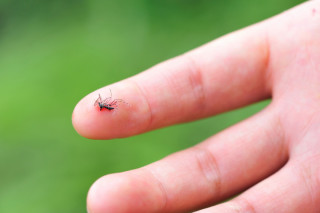 A lot of women across the world are lucky. If they don’t live in regions where diseases like malaria are endemic, then they don’t need to worry about infection and treatment while they’re pregnant. These women don’t have to think about whether or not anti-malarial drugs will affect their unborn child, they just follow the advice of institutions like the UK’s National Health Service – and steer clear of parts of the world where malaria’s a concern.
A lot of women across the world are lucky. If they don’t live in regions where diseases like malaria are endemic, then they don’t need to worry about infection and treatment while they’re pregnant. These women don’t have to think about whether or not anti-malarial drugs will affect their unborn child, they just follow the advice of institutions like the UK’s National Health Service – and steer clear of parts of the world where malaria’s a concern.
But not all women have the luxury to choose. Some live in countries or regions where malaria’s an everyday reality. What treatment options do these women have if they’re expecting a baby? It’s important to find an answer as around 10,000 women and 200,000 newborns die every year as a result of malaria. Malaria also affects newborns’ birth weight – a contributing factor to infant mortality – and this study in Thailand found that preventing malaria in pregnancy would help boost babies’ survival rates.
The WHO updated its recommendations for pregnant women at risk in Africa in October 2012, but as other experts have pointed out, this advice isn’t relevant everywhere. There’s still a huge gap in knowledge about treating malaria in pregnancy in Asia. Current data comes from research in just a handful of countries in this continent, and factors such as drug resistance and different settings mean that what works in one place might not work in another.
Mosquitoes don’t sit still. They evolve, adapting to drugs, relocating as their habitats change. So that means that research into how to treat malaria in pregnancy cannot stay still either. As what works one day in one part of the globe might not work tomorrow in another region.
